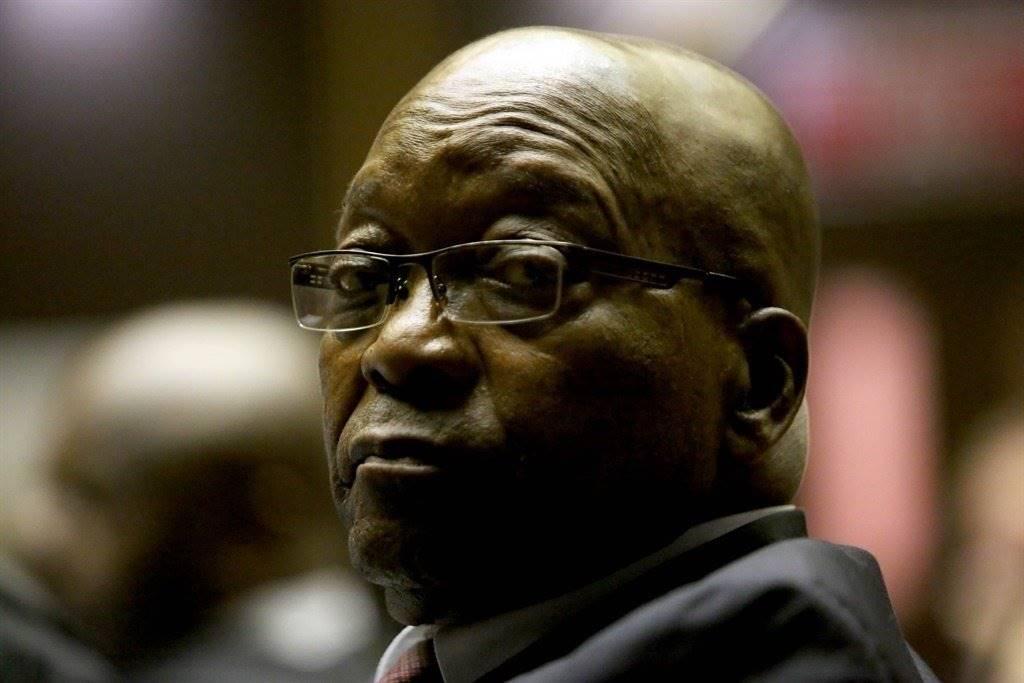Africa-Press – South-Africa. Former president Jacob Zuma’s lawyers have urged the Supreme Court of Appeal to take “judicial notice” of the deadly July unrest that followed his contempt imprisonment when it decides on whether to revoke his medical parole.
Zuma’s lawyers previously referred to the July violence that left 300 people dead and caused billions of Rands in damage in arguments to both KwaZulu-Natal High Court in Pietermaritzburg Judge Piet Koen and Supreme Court of Appeal President Mandisa Maya, as part of his corruption trial litigation. They sought to suggest that the unrest was the result of the “unconstitutional” decision to jail him for defying the Constitutional Court’s ruling that he appear before the State Capture Inquiry.
Now, to defend then National Commissioner of Correctional Services Arthur Fraser’s decision to grant Zuma medical parole, the former president’s lawyers have argued that Fraser was entitled to take into account “the public interest in avoiding a repeat of the widely reported looting which took place in July 2021” in his decision-making process.
Maya dismisses Zuma ‘special plea’ reconsideration, denies claims of deliberate delays
Fraser decided to release Zuma despite the Medical Parole Advisory Board – which is made up of expert doctors – considering all the relevant medical reports and submissions by Zuma’s military doctors and finding that he did not qualify for release on medical parole.
Under the provisions of the Correctional Services Act, medical parole can only be granted to an offender “suffering from a terminal illness or condition or if such an offender is rendered physically incapacitated as a result of injury, disease or illness to severely limit daily activity or inmate self-care”.
The Board stated in its findings:
“His treatment has been optimised and all conditions have been brought under control. From the available information in the reports, the conclusion reached by the MPAB is that [Zuma] is stable and does not qualify for medical Parole according to the Act.”
Zuma’s lawyers argue that this finding was merely a “recommendation” and is “non-binding”.
They also contend that the Helen Suzman Foundation, Democratic Alliance, and AfriForum – which all challenged the lawfulness of Zuma’s medical parole – are “naive in the extreme but also wrong in law” to argue that Fraser was precluded from considering the July violence “in the aftermath of what was, rightly or wrongly, perceived to be the unfair denial of Mr. Zuma’s constitutional rights”.
“There is a well-established legal presumption that statutes must be interpreted to promote the public interest, sometimes even at the expense of individual rights,” they contend, in heads of argument filed at the Supreme Court of Appeal this morning.
“This Honourable Court will be asked to take judicial notice that such public disturbances did indeed take place in July 2021 and that an estimated 300 or more people lost their lives. That is a matter of public concern, which would ordinarily necessitate a public inquiry. Conversely, the perceived prevention of the recurrence of such an event was a legitimate and very relevant consideration for the National Commissioner to take into account.”
Zuma is seeking to challenge Gauteng High Court in Pretoria Judge Elias Matojane’s ruling that he was unlawfully granted medical parole and should return to prison – without the time that he has already served on medical parole counting as part of the 15 months he was ordered to serve by the Constitutional Court.
During Gauteng Judge President Dunstan Mlambo’s interview for the position of Chief Justice, he revealed that Matojane had been repeatedly threatened after he delivered that ruling.
The judge subsequently granted Zuma’s urgent application for leave to appeal his decision, after finding that his order that the 80-year-old’s time on medical parole not be considered as time served may be one of the grounds on which his ruling could be challenged, as it had a potentially adverse impact on Zuma’s constitutional rights.
Matojane told Zuma’s advocate Dali Mpofu:
“Despite what the Constitutional Court has said [about Zuma’s contempt of it and the judiciary], the fact of the matter is that his freedom of movement is restricted, which has an impact on his right to dignity and having regard to the fact that he is not well, he is of advanced age, he deserved compassion and empathy.”
Zuma’s lawyers now argue that the legal challenges to the lawfulness of his medical parole were aimed at “using the Courts to harass Mr. Zuma and to continue the political narrative that he has corruptly obtained an undeserved medical parole”.
“Of course, this is done without any shred of evidence,” they state.
They also argue that his status as “a former Head of State, which is directly responsible for his unique access to 24-hour medical care from SAHMS and the classification of his medical information” was also a relevant factor for Fraser to consider when he made his medical parole decision.
“The glib dismissal by [HSF, the DA, and AfriForum] of these factors as evidence of ‘preferential treatment’ is either naive in the extreme or simply a sign of ignorance or opportunism. Not every member of the public or every inmate has guaranteed access to 24-hour medical service as Mr. Zuma does. This must surely be a relevant consideration when the question of his medical parole is being considered.”
For More News And Analysis About South-Africa Follow Africa-Press






